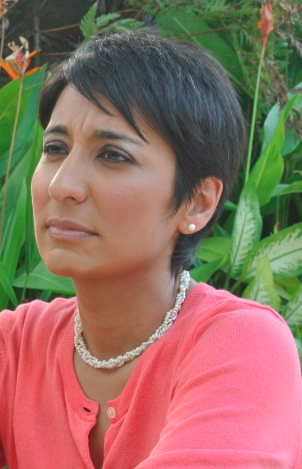
Irshad Manji is a Ugandan-born Canadian educator. She is the author of The Trouble with Islam Today (2004) and Allah, Liberty and Love (2011), both of which have been banned in several Muslim countries. She also produced a PBS documentary in the America at a Crossroads series, titled Faith Without Fear, which was nominated for an Emmy Award in 2008. A former journalist and television presenter, Manji is an advocate of a reformist interpretation of Islam and a critic of literalist interpretations of the Qur'an.
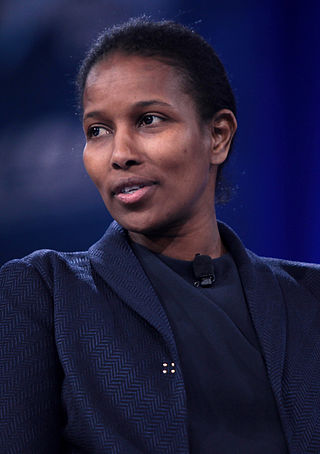
Ayaan Hirsi Ali is a Somali-born Dutch-American activist and former politician. She is a critic of Islam and advocate for the rights and self-determination of Muslim women, opposing forced marriage, honour killing, child marriage, and female genital mutilation. Hirsi Ali has founded an organisation for the defense of women's rights, the AHA Foundation. She works for the Hoover Institution at Stanford University, the American Enterprise Institute, and was a senior fellow at the Future of Democracy Project at Harvard Kennedy School. She currently hosts The Ayaan Hirsi Ali Podcast and is a columnist for UnHerd, a British online magazine.

Reza Aslan is an Iranian-American scholar of sociology of religion, writer, and television host. A convert to evangelical Christianity from Shia Islam as a youth, Aslan eventually reverted to Islam but continued to write about Christianity. He has written four books on religion: No God but God: The Origins, Evolution, and Future of Islam, Beyond Fundamentalism: Confronting Religious Extremism in the Age of Globalization, Zealot: The Life and Times of Jesus of Nazareth, and God: A Human History.

The Trouble with Islam Today, originally titled The Trouble with Islam, is a 2004 book critical of Islam written by Irshad Manji, styled as an open letter to concerned citizens worldwide, Muslim or not.

Samuel Benjamin Harris is an American philosopher, neuroscientist, author, and podcast host. His work touches on a range of topics, including rationality, religion, ethics, free will, neuroscience, meditation, psychedelics, philosophy of mind, politics, terrorism, and artificial intelligence. Harris came to prominence for his criticism of religion, and Islam in particular, and is known as one of the "Four Horsemen" of New Atheism, along with Richard Dawkins, Christopher Hitchens, and Daniel Dennett.

Tarek Fatah was a Pakistani-Canadian journalist and author. He was a Punjabi born into Islam and was a vocal critic of the Pakistani religious and political establishment, and the partition of India.

Maryam Namazie is a British-Iranian secularist, communist and human rights activist, commentator, and broadcaster. She is the Spokesperson for Fitnah – Movement for Women’s Liberation, One Law for All and the Council of Ex-Muslims of Britain. She is known for speaking out against Islam and Islamism and defending the right to apostasy and blasphemy.
The Secular Islam Summit was an international forum for secularists of Islamic societies, held 4–5 March 2007 in St. Petersburg, Florida. It was largely organized and funded by the Amherst, NY-based Center for Inquiry, a secular humanist educational organization, along with secular Muslims such as Banafsheh Zand-Bonazzi and in partnership with the International Intelligence Summit, a forum on terrorism.
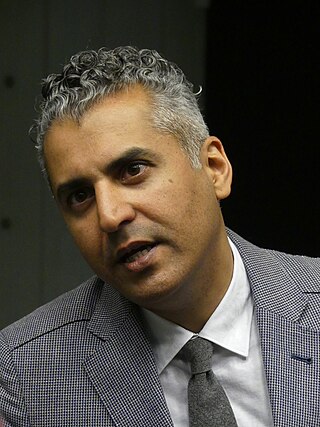
Maajid Usman Nawaz is a British activist and former radio presenter. He was the founding chairman of the think tank Quilliam. Until January 2022, he was the host of an LBC radio show on Saturdays and Sundays. Born in Southend-on-Sea, Essex, to a British Pakistani family, Nawaz is a former member of the Islamist group Hizb ut-Tahrir. His membership led to his December 2001 arrest in Egypt, where he remained imprisoned until 2006. While there, he read books about human rights and made contact with Amnesty International who adopted him as a prisoner of conscience. He left Hizb-ut-Tahrir in 2007, renounced his Islamist past, and called for a secular Islam. Later, Nawaz co-founded Quilliam with former Islamists, including Ed Husain.
The term New Atheism was coined by the American journalist Gary Wolf in 2006 to describe the positions of some atheist academics, writers, scientists, and philosophers of the 21st century.
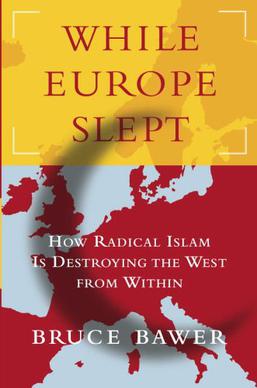
While Europe Slept: How Radical Islam is Destroying the West from Within is a 2006 book by Bruce Bawer. It was Bawer's second book dealing with the issue of religious fundamentalism, following his earlier Stealing Jesus: How Fundamentalism Betrays Christianity, a critique of fundamentalist Christianity published in 1998.
This is a bibliography of literature treating the topic of criticism of Islam, sorted by source publication and the author's last name.
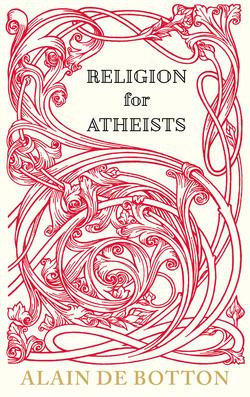
Religion for Atheists: A non-believer's guide to the uses of religion is a book by Alain de Botton published in 2012. It argues that while supernatural claims made by religion are false, some aspects of religion are still useful and can be applied in secular life and society. Religion for Atheists was published in the UK in hardback edition by Hamish Hamilton, and in the US by Pantheon. Religion for Atheists was a New York Times non-fiction bestseller, and has been widely reviewed, with mixed results.
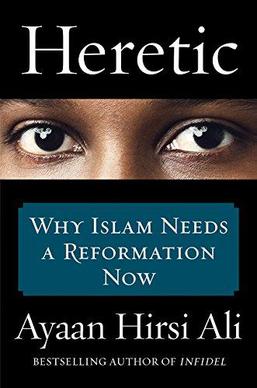
Heretic: Why Islam Needs a Reformation Now, also published as Heretic: Why Islam Must Change to Join the Modern World, is a 2015 book by Ayaan Hirsi Ali, in which the author advocates that a Muslim reformation is the only way to end the horrors of terrorism, sectarian warfare and the repression of women and minorities.

Regressive left, also referred to as regressive liberals or regressive leftists, is a pejorative term to describe by its proponents a branch of left-wing politics that is accused of being accepting of, or sympathetic to, views that conflict with liberal principles, particularly by tolerating Islamism. Among those who have used the term are the British political activist Maajid Nawaz, American political talk-show hosts Bill Maher and Dave Rubin, and New Atheist writers, such as Sam Harris and Richard Dawkins.
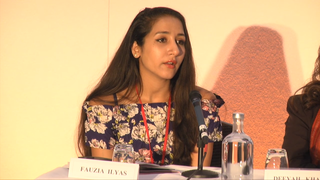
Fauzia Ilyas is a Dutch Pakistani speaker, political activist, and the president and co-founder of Atheist & Agnostic Alliance Pakistan. Ilyas, an open atheist and apostate of Islam, fled from Pakistan after receiving threats to her life and faced potential legal charges for blasphemy in Pakistan. Ilyas received asylum in the Netherlands, where she is now a critic of Islam and campaigner for feminism, secularism, and atheist rights in Pakistan.

Reconciliation: Islam, Democracy, and the West (2008) is the last book by former Pakistani Prime Minister Benazir Bhutto. The book was published after her assassination.
This is a list of individual liberal and progressive Islamic movements in North America, sorted by country.
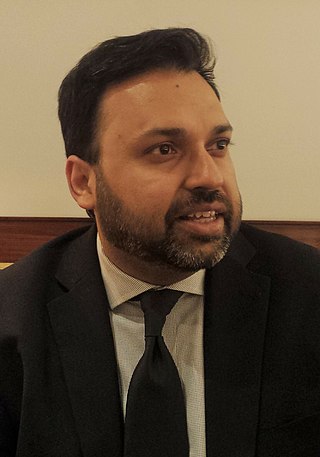
Ali Amjad Rizvi is a Pakistani-born Canadian atheist ex-Muslim and secular humanist writer and podcaster who explores the challenges of Muslims who leave their faith. He wrote a column for the Huffington Post and co-hosted the Secular Jihadists for a Muslim Enlightenment podcast together with Armin Navabi.
Ex—Muslims are people who were raised as Muslims or converted to Islam and later renounced the religion of Islam. Leaving Islam is a uniquely individual experience and a growing social phenomenon. Challenges come from the conditions and history of Islam, Islamic culture and jurisprudence, and sometimes local Muslim culture. This has led to increasingly organized literary and social activism by ex-Muslims, and the development of mutual support networks and organizations to meet the challenges of abandoning the beliefs and practices of Islam and to raise awareness of human rights abuses suffered by ex-Muslims.















